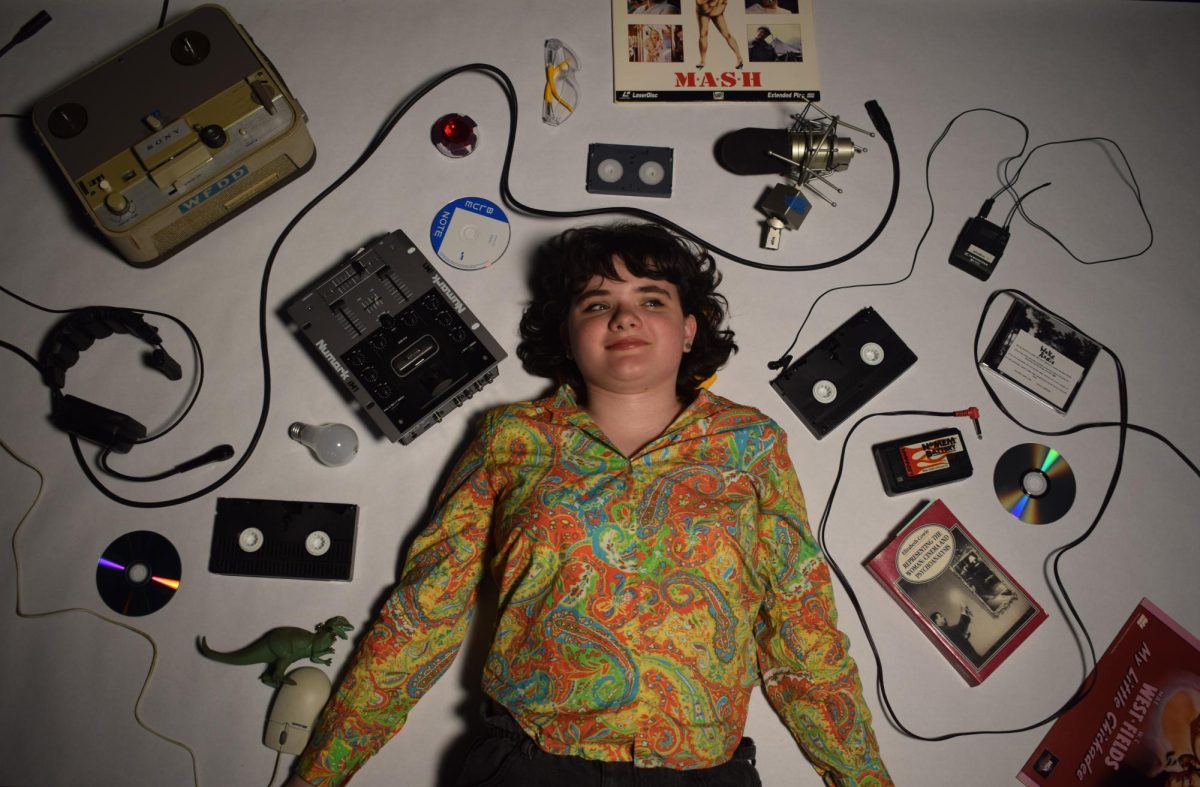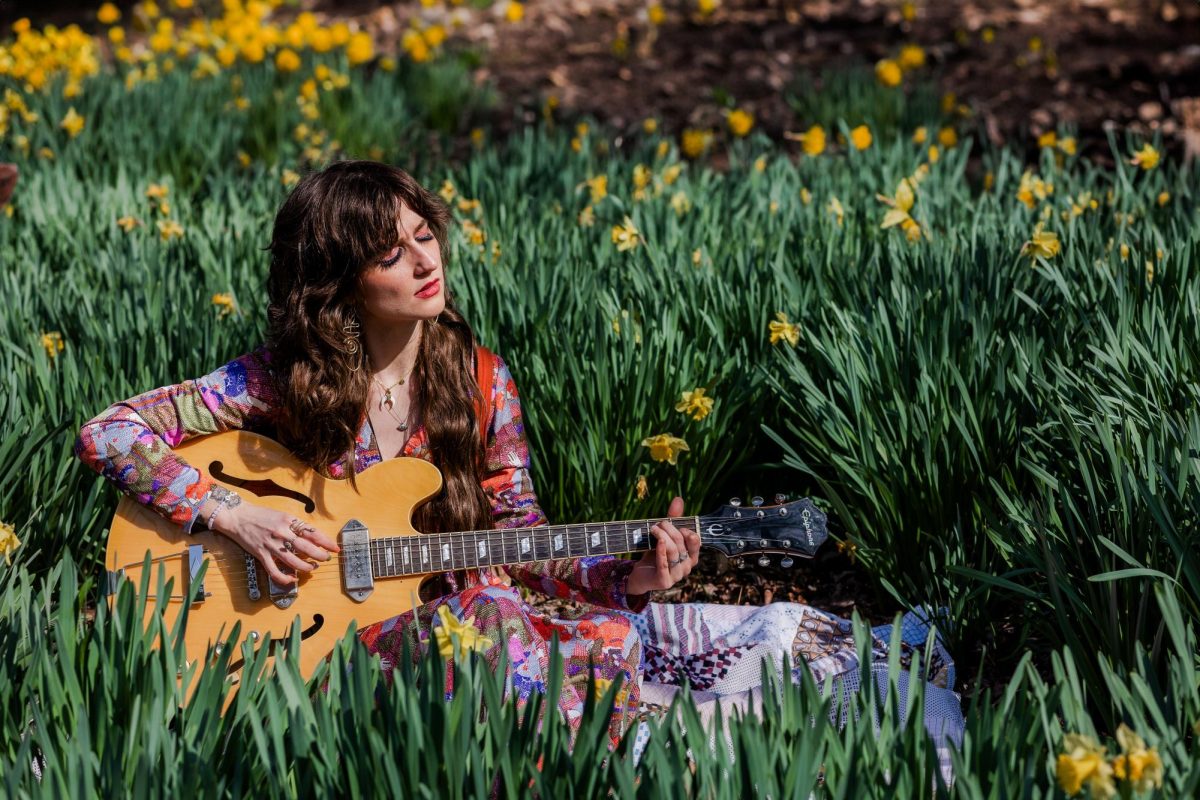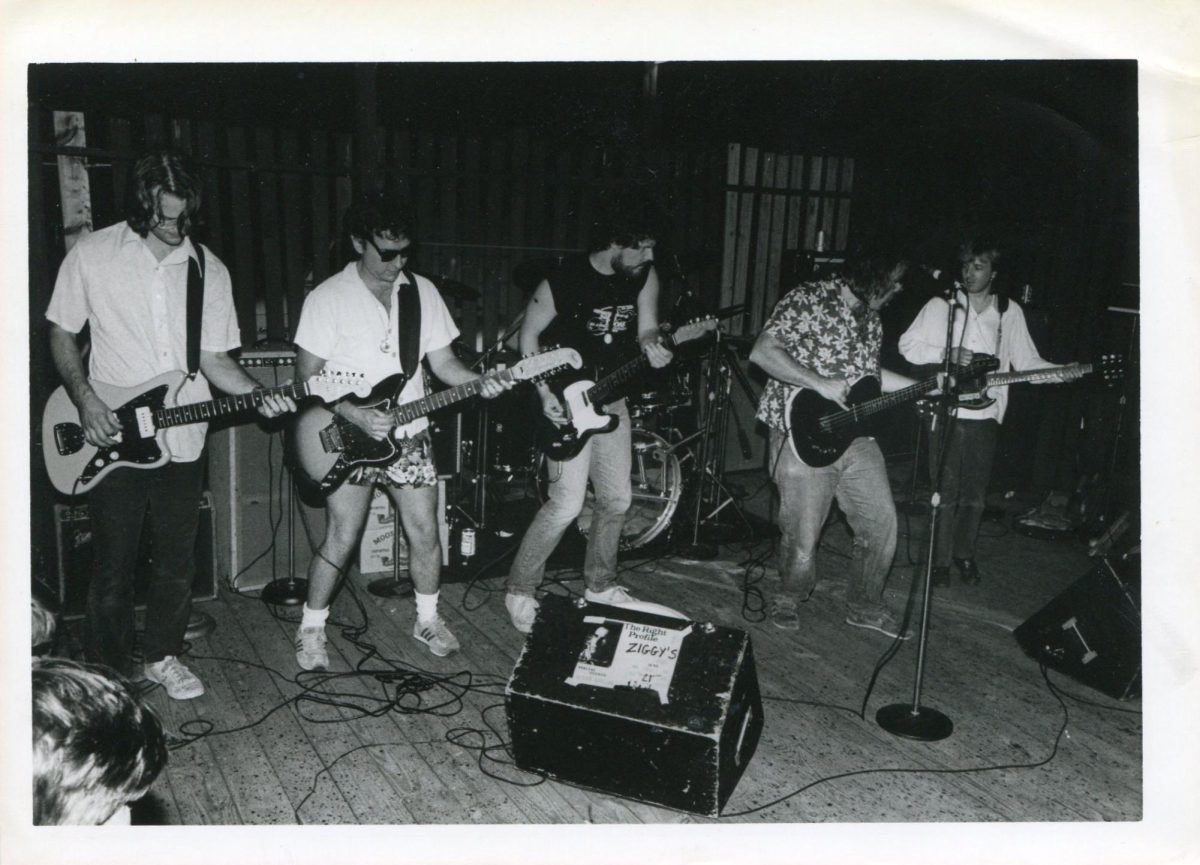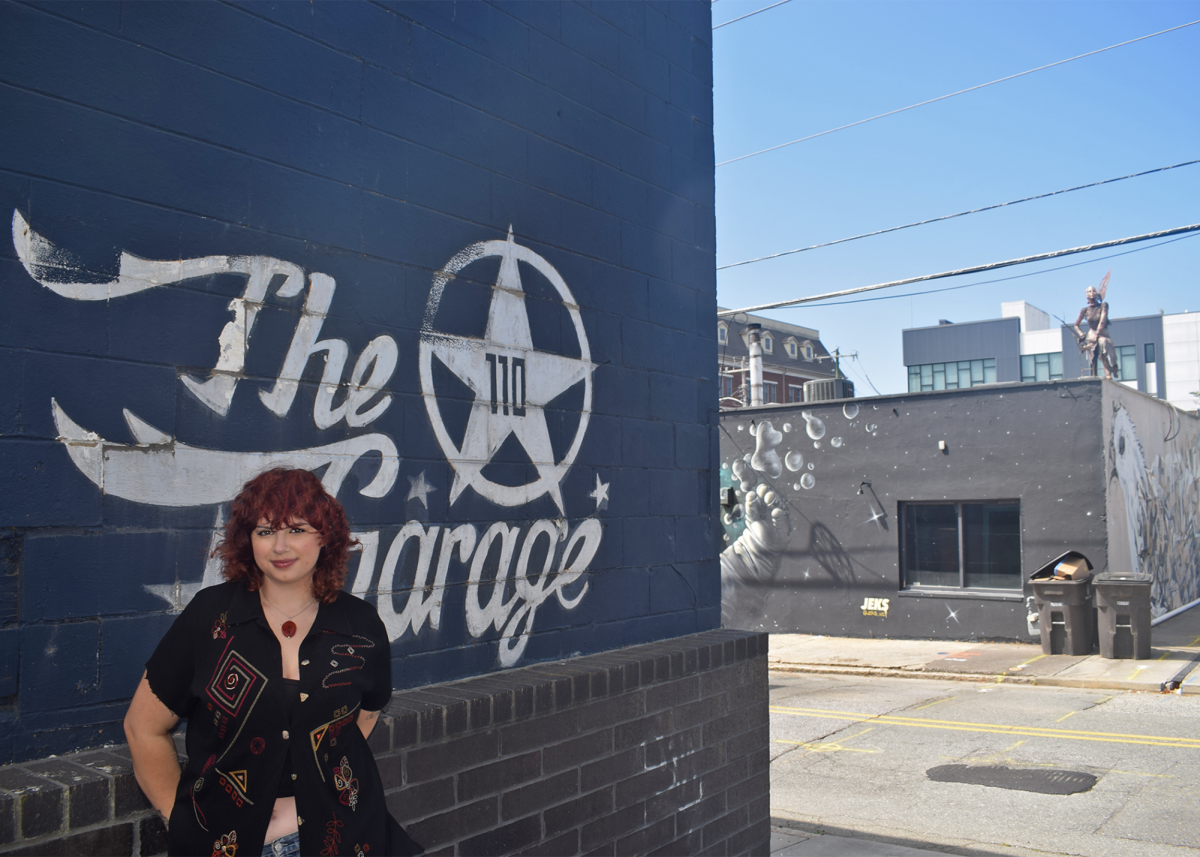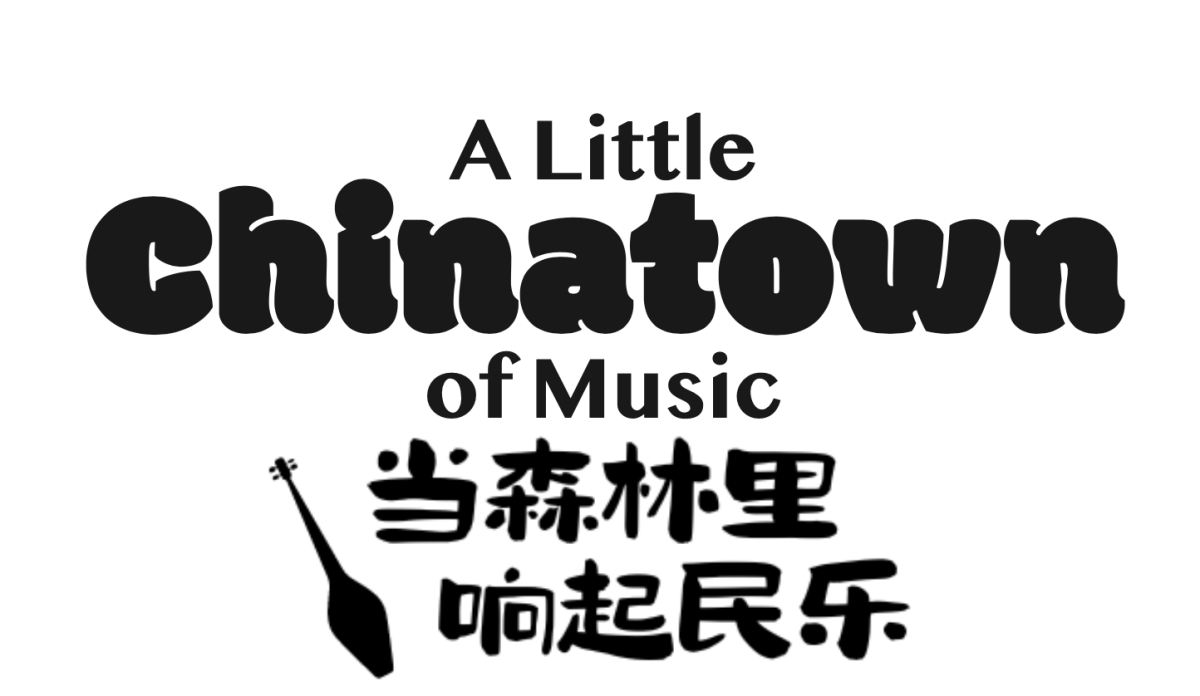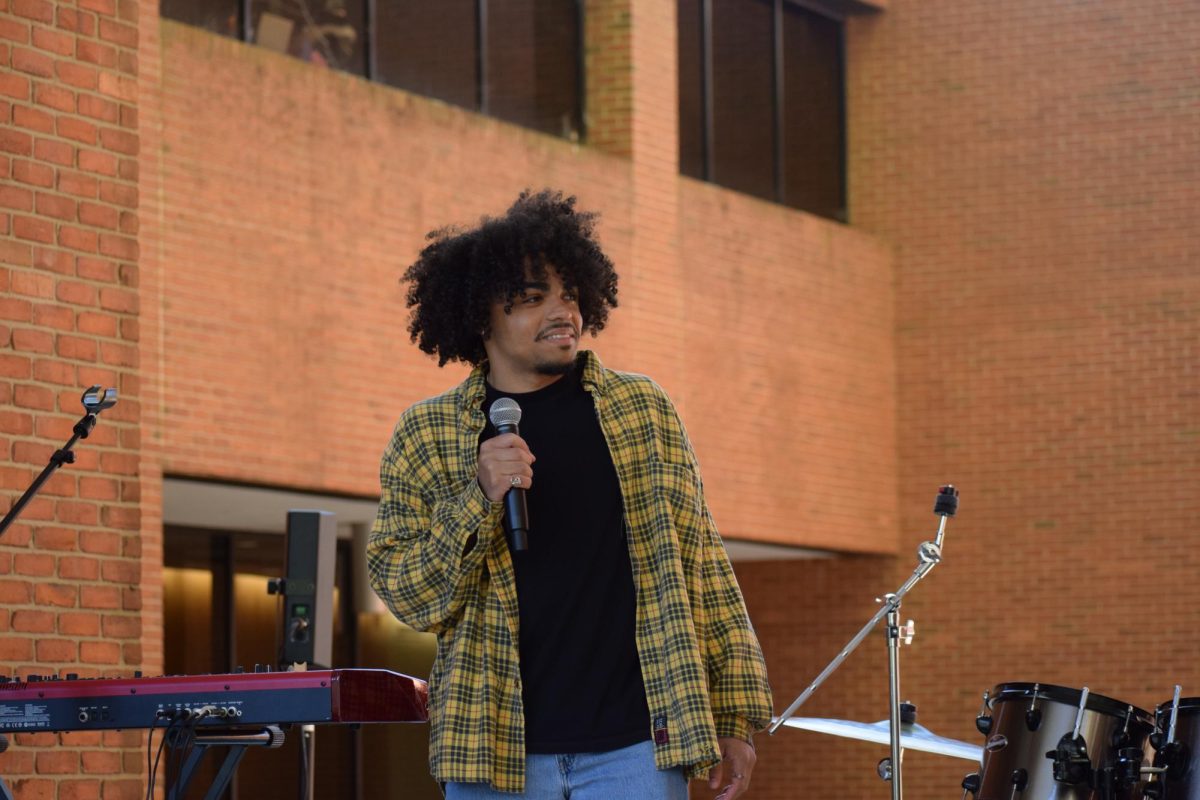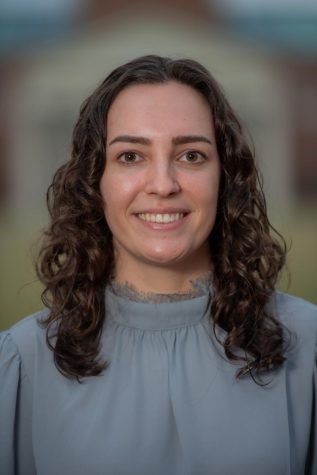Birds chirp in the light breeze of a bright afternoon. Coveted spring weather knocks on Thursday’s door. While students head to their final classes of the day, junior Alyssa Zaepfel’s day isn’t over.
She inhales her first breath of silence on the bench outside Scales Fine Arts Center and takes in the day’s beauty as she thinks of her student Cora Roach. Has she practiced this week? What if she wants to start learning a new piece today? She mentally composes the upcoming lesson while the world stands still for a moment.
Cora and her brother come racing down the Scales pathway with their mother strolling shortly behind. Cora approaches the bench — flute and “Spy School” book in tow — bursting at the seams with energy.
Cora’s contagious 11-year-old energy touches Alyssa on a deeper level. Since she started meeting with Cora about a year ago, Alyssa has been able to share one of the greatest joys in her life with someone yearning to grow and explore new interests.
Alyssa’s flute has been an extension of her mind and heart since the fourth grade. Playing the instrument has given her lifelong friends and an inspiring mentor. It has taught her integrity, discipline and confidence. It has brought her joy and a sense of belonging.
She would love nothing more than to share the fulfillment the flute has given her with another. Musical Empowerment has provided her with that opportunity.
* * *
Executive Director Katie Battle began working for Musical Empowerment about a year and a half ago, at a time when she was looking to take a break from music education. She learned about it when hiring the person taking over her role as a school band and orchestra director in the North Carolina public school system. The Musical Empowerment program has been providing free, weekly, 40-minute music lessons for K-12 students since 2002 when the program sprang to life at the University of North Carolina at Chapel Hill. Spearheaded by Christine Moseley, the then-titled Carolina Music Outreach connected students in the Chapel Hill-Carrboro school district with college mentors who could teach music to those who could not afford lessons.
We’re not trying to make Yo-Yo Ma’s … We want [students] to be able to learn in a way that makes sense to them. — Musical Empowerment Executive Director Katie Battle
Since its origin, Carolina Music Outreach became a national 501(c)(3) organization entitled Musical Empowerment in 2013 and has created chapters at six additional college campuses, including those at NC State University and Wake Forest University. Under national direction, the program has a greater ability to impact students and provide them with the resources to thrive.
“If you’re teaching a seven-year-old — which is our youngest student — piano, you’re not going to use the same kind of resources a piano student in high school would,” Battle said. “[We get] all of those resources put together and share them with our college mentors, giving them specific things like repairs and proper techniques.”
Battle explained that Musical Empowerment also provides students with free instruments on which they can practice. Instrument donations are collected at both the national and chapter levels — both in the form of currency and instruments themselves — in addition to the funds accrued through their yearly fundraiser, Strike a Chord, in early February.
“Some [chapters] did busking on campus [for Strike a Chord], which is where you go play in public and have a hat out,” Battle said. “Some did bake sales. One did a succulent sale. … So they do participate in fundraising, but a lot of the funding comes from grant writing and donors at the national office.”
Battle’s eyes lit up as she commented on the impact of Musical Empowerment and, specifically, the mentorship of the college students. The program provides students with the opportunity to contribute to the community by sharing their passion and guidance with younger students in the surrounding school district.
“It’s a special thing for Musical Empowerment to have college students as mentors,” Battle said. “The [age] gap between our students in the area and the college students … is smaller, and a lot of that relationship-building seems to be a lot easier than it would be for somebody who is much older.”
The nature of the mentor-student relationship can create a bond that is often hard to find in other contexts as the program’s college mentors allow children to begin learning an instrument in a flexible and comfortable way.
“We’re not trying to make Yo-Yo Ma’s,” Battle said. “We want [students] to be able to learn in a way that makes sense to them.”
* * *
Alyssa walked hesitantly into her first private lesson as a seventh grader shaking and fearful of the instructor in front of her. This was her opportunity to show what she’s made of. She lifted her flute to her lips — and she started bawling. Her instructor asked her to play a simple scale, but the pressure was too great.
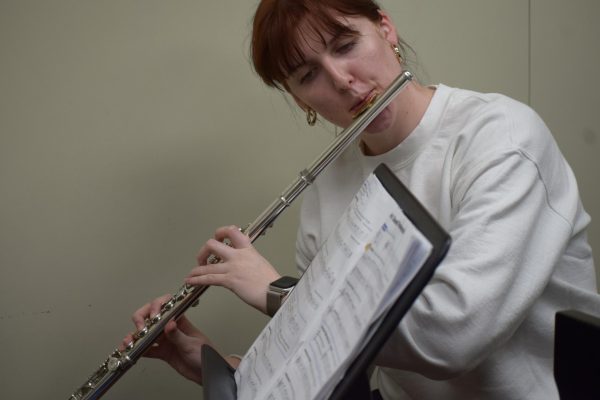
“I’m one of those perfectionist kids where, if I can’t do it perfectly, I’m not gonna do it at all and just shut down,” Alyssa said as she reflected on this memory.
Learning to play music in this setting reaches a new level of vulnerability. As Alyssa recounted, to sit at the foot of someone with remarkable skill in search of guidance can be difficult, especially when you have a mindset focused on performing well. But at the same time, it creates a remarkable relationship.
“We really developed this awesome friendship and mentorship connection,” Alyssa said. “During every [college vacation break], I still go home and have a lesson with Mrs. Behrens.”
When Alyssa saw an email about Musical Empowerment in her inbox during her sophomore year at Wake Forest, Behrens encouraged her to take the opportunity to share the gift of learning music with someone else.
“[Mrs. Behrens told me I] know how it feels to struggle, and [I] know how to push through that struggle,” Alyssa said. “And that’s an experience you can give to someone else….And then I met Cora.
* * *
“So do you want to show me what you’ve been practicing?”
Alyssa and Cora sit on adjacent piano benches in the tiny practice room in the Scales basement. After chatting excitedly about her dad’s love for hockey and her free time spent reading, Cora plays the first few notes of “Dreidel, Dreidel, Dreidel” and abruptly stops.
“I think I’m doing it wrong,” she says.
Alyssa leans across the music stand and adjusts Cora’s finger placement with a motion for her to continue playing. Cora leans away from the studio piano, her long brown hair grazing the keys, and she draws the flute back to her lips. An unhurried, on-pitch tune emits from Cora’s flute. Alyssa’s eyes gleam with satisfaction.
“I have to restrain myself from having an outburst [of triumph] while she’s playing,” Alyssa said about witnessing Cora play well. “I feel her success with her because … watching her succeed … I know how it feels to finally get it.”
Alyssa’s teaching style takes a relaxed form. She sits patiently as Cora speaks to her and lets Cora dictate the lesson’s pace.
“I like that she teaches me to take it one step at a time,” Cora said.
A noticeable hallmark of Alyssa’s teaching style is consistent positive reinforcement. Her encouragement keeps the expectations of the lesson to a minimum, allowing for the pair to connect over the instrument in a more meaningful way.
“The lesson is for Musical Empowerment, but it’s also to create that bond,” Alyssa said. “I think [Cora] finds a similar level of satisfaction talking to someone older as I do talking to someone younger. … We’ll be talking, and then she’ll just go, ‘We need to play.’ She was like, ‘We need to set a timer on how long we can sit here and talk.’”
Cora and Alyssa often go off on tangents, with conversation topics ranging from Cora’s fifth-grade class, to hair dye, to waking up early — but they always manage to return to music. Music forms the foundation of their relationship and provides a medium through which Alyssa and Cora each relate to the world.
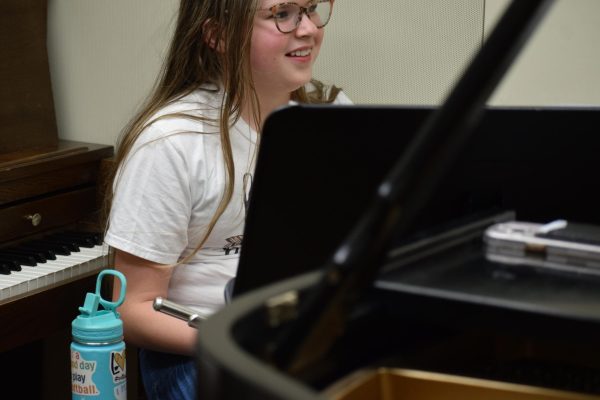
“I see the world more musically [now],” Cora said after her lesson. “I end up pretending to play the flute when I hear music sometimes, like when I hear a band playing.”
“I do that, too!” Alyssa said.
Cora brings Alyssa a sense of nostalgia from when she was first mesmerized by music. Cora will join the school band next year, and Alyssa was involved in her school’s band. Cora will play a munchkin in Mount Tabor High School’s production of “The Wizard of Oz,” and Alyssa performed in the pit orchestra for the same play.
“[It was] a full-circle moment because we started lessons almost exactly a year ago, and I started learning the flute in the fourth grade,” Alyssa said. “And she very much reminds me of how I was when I was in fourth grade. She’s very into books. She loves learning. She’s always craving to soak up knowledge like a sponge.”
* * *
When Eric Wang applied to Wake Forest, he knew he wanted to participate in Musical Empowerment. But as Wang entered a COVID-plagued freshman year, he struggled to find students interested in taking music lessons over Zoom. The Wake Forest chapter had lost its charter, and Wang worked hard to regain it.
“One of the biggest projects of my time in college was helping regain that charter and making people more aware of Musical Empowerment because it kind of died out,” said Wang, the senior co-president of the Wake Forest chapter.
Wang’s commitment to the organization has contributed in large part to its current popularity in the community. While the program has been functioning well, there has been an issue with its mentor recruitment.
“The most challenging part [about Musical Empowerment] is not finding kids from the community, it is finding mentors,” Wang said.
The Wake Forest chapter currently operates with about 20 mentors, but this supply is not enough to meet the community’s demand. Most students attend Speas Global Elementary School, which is about a mile down the road from Wake Forest’s campus.
“Musical Empowerment [lesson availability] fills up so quickly that I have to say [to my students] ‘there are no more teachers this semester,’” said Michael Lauricella, a music and drama teacher at Speas Elementary.
Despite the limited availability, Lauricella has witnessed the impact of Musical Empowerment firsthand. When Wang first contacted Lauricella in an attempt to recruit more students in the wake of COVID-19, Lauricella was more than happy to help repair the damage to the program due to his observation of the impact music has on students.
“You see so many students who might not excel academically or are struggling socially, who are drawn to music,” Lauricella said. “It gives them a sense of community, a sense of pride. They take ownership of their work, and they’re able to show who they are in a completely different way.”
It is such a special thing to be able to build a connection with someone younger than you through mentorship in music.
— Alyssa Zaepfel
With Musical Empowerment in particular, Lauricella has seen students who have participated in the program have boosts in their self-esteem in addition to improvements in their leadership skills and their ability to take risks. It is also evident that Musical Empowerment has also impacted the college-aged mentors. Similarly to Lauricella, Wake Forest Musical Empowerment Chapter Junior Co-President MC McCormack has seen the effects of the program in her one-on-one lessons.
“I’m more aware of how much someone’s meaningful, intentional time and thoughtfulness can mean to somebody…” McCormack said. “[My student has] taught me so much more about life and trying to love others.”
* * *
After Alyssa sends Cora and her family home for the day, she heads back to Taylor Residence Hall to grab her backpack and go to the library. Walking away with a smile on her face, she recounts the success of the day’s lesson and the direction she wants to go in for the next lesson.
All of Cora’s hard work is leading up to the end-of-semester recital that will be held in Scales. She will have the opportunity to show off her new skill set to all of the mentors and families involved in the program, which is not only the culmination of weeks of practice but also an emotional moment for mentors.
“I’m glad that people are finding the joy that I’m finding in [Musical Empowerment],” Alyssa said about watching other mentors react to their students at the recital. “It is such a special thing to be able to build a connection with someone younger than you through mentorship in music.”
As the semester comes to a close, graduating seniors will move on to new life stages and commitments, forcing them to stop meeting with their Musical Empowerment mentees. In the simultaneous opening and closing of different chapters of life, mentors like Alyssa can rest easy knowing that they have grown as a person and teacher, and students like Cora have been exposed to the joy of learning to play music. Alyssa may only be a junior, but she enjoys being part of the journey of self-discovery every child faces in their quest for meaning and belonging.
“I want [Cora] to find in life something she has passion for and that makes her feel like she’s working towards the best version of herself that she can be.”




